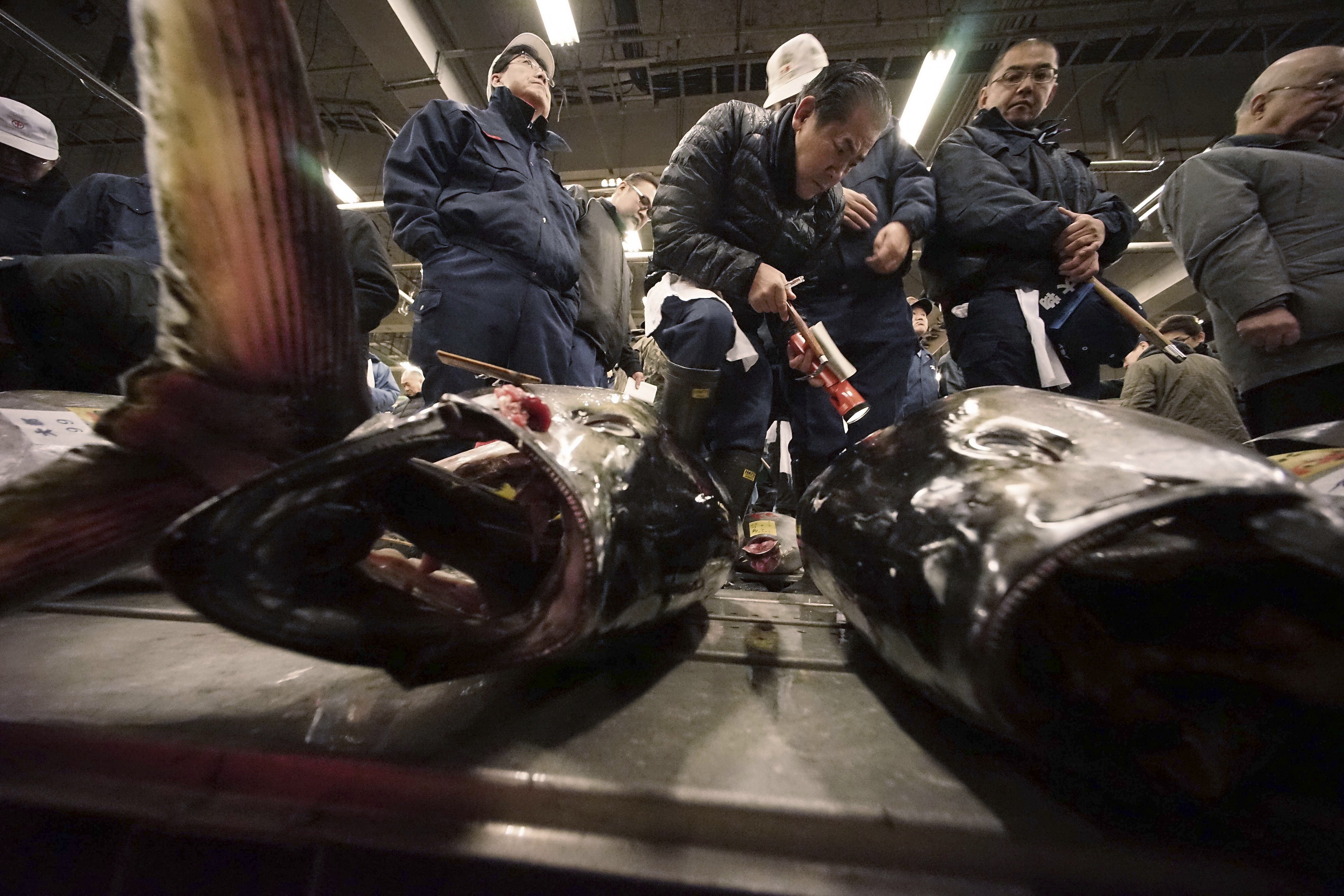An international fisheries panel has agreed to create new rules to control bluefin tuna catches in the northern Pacific amid a sharp decline in young fish, officials said on Thursday.
The Northern Committee of the Western and Central Pacific Fisheries Commission reached the agreement, in line with a Japanese proposal, during a four-day meeting in Sapporo.
The WCPFC will study details, including the regulations and conditions needed, in about a year's time.
Stocks of bluefin tuna — a pricey delicacy served as sushi — have fallen in the Pacific due to overfishing.
The rule is aimed at getting an emergency measure ready before the species is in any danger of extinction.
The panel will hold another meeting to make a formal decision on the agreement as the number of countries attending the meeting failed to meet its stipulations, the officials said. Countries such as Japan, the United States and South Korea took part.
The WCPFC decided last year to halve the catches of bluefin tuna weighing less than 30 kg in the Pacific from the 2002-2004 average. That measure was started this year.
Separately, the North Pacific Fisheries Commission, a new international panel, held its first meeting Thursday in Tokyo to discuss measures to conserve saury stocks in the North Pacific, according to the Fisheries Agency.
Saury resources in the North Pacific are feared to be dwindling as China and Taiwan have sharply increased their catches on the high seas.
The meeting was attended by Japan, Canada, Russia, China, South Korea and Taiwan, while the United States joined as an observer.
The Tokyo-based commission was set up in accordance with the Convention on the Conservation and Management of High Seas Fisheries Resources in the North Pacific Ocean, which took effect on July 19.




